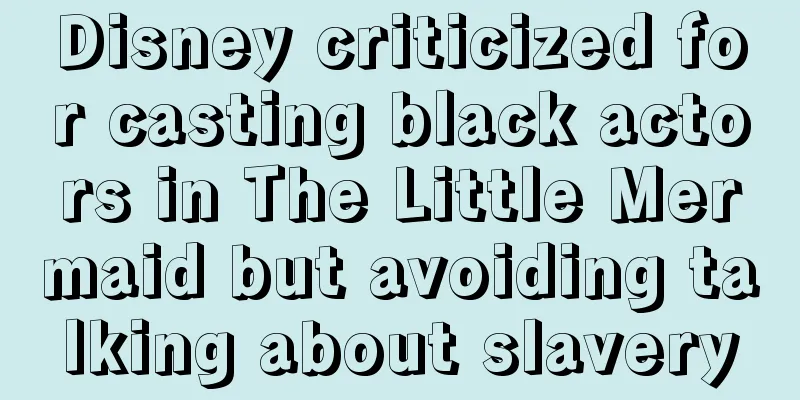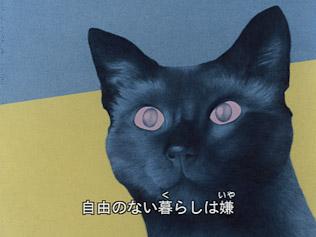Disney criticized for casting black actors in The Little Mermaid but avoiding talking about slavery

|
From the announcement of the casting to the release of the live-action film "The Little Mermaid", it has received negative reviews from audiences around the world, including some in the entertainment industry. Marcus Ryder, one of the presidents of the Royal Academy of Dramatic Art, who usually advocates for media content diversity, has also criticized "The Little Mermaid" for casting a black lead but avoiding talking about slavery. Ryder said he agreed with Disney's decision to improve racial representation in film and television works by casting black singer Halle Bailey as Ariel and black actress Noma Dumezweni as the prince's mother Queen Selena. But he also believed that as a children's movie, "The Little Mermaid" should not choose to not acknowledge the history of slavery just because adults would find it offensive. Ryder speculates that The Little Mermaid is set in the Caribbean in the 18th century. Although the movie does not specify the time point, Ryder believes that slavery was still practiced during that period, but the movie does not describe it at all. He does not want children to mistakenly think that period was an era of racial harmony after watching the movie, and does not want children to be misled by the movie. Ryder suggested that even if they wanted to avoid slavery, there were better solutions, such as the crew could set the time and space in Haiti after 1804, because Haiti was the first Caribbean country to abolish slavery. In this way, the film would not be suspected of whitewashing history. He understands that this is a fictional story, and it does not prohibit black children from having fantasies of escaping reality, but he just doesn't want to see children have any misunderstandings about important history. Ryder lambasted that setting fantasy stories at this point in history was like setting a Jewish-Gentile love story in 1940 and ignoring the Holocaust, or setting the setting on a slave plantation in the antebellum South and pretending that enslaved Africans were actually happy. Ryder also expressed encouragement for Hollywood to continue to promote racial representation, even if this will lead to attacks from many netizens, but it will also bring loyal audiences willing to defend the film to the studio, and this kind of audience cannot be bought with any amount of money. |
<<: Disney makes "strategic changes" and may delete more movies and TV shows from streaming media
>>: "Transformers 7" word-of-mouth release Rotten Tomatoes starts at 68%
Recommend
Yukino smiles calmly! TV animation "My Teen Romantic Comedy Is Wrong, As I Expected" new PV released
Today (June 12), the official TV animation "...
The appeal and evaluation of the anime for grown-up women, "Time: The Wind that Slips Across the River"
Adult Women's Anime Time "Wind Sliding A...
The appeal and reviews of "Sou-kiri Science Adventure: That's it!"
Science Adventure - That's it! - A fusion of ...
Classic Hong Kong film "The Killer" to be remade into an American TV series with Omar Sy as the lead
Film and television media Deadline reported today...
The new poster for the second season of "The Last of Us" will be released on April 13!
Recently, the new poster and stills of the second...
New trailer for the classic "The Quintessential Quintuplets" movie to be released on May 20
The new theatrical version of the popular romanti...
The beautiful lady appears! The official Chinese trailer for the second season of "The Punisher"
The full trailer for the second season of Netflix...
The female version of Ultraman makes a shining debut! The latest trailer of the new movie "Ultraman R/B"
The new theatrical version of "Ultraman R/B ...
Fans think the biggest problem with Spider-Mrs. is the reuse of footage from Spider-Man 2
The female superhero movie "Mrs. Spider: The...
The appeal and reviews of "Hero Classroom": A fusion of education and adventure
"Hero Classroom": The birth of a new he...
Mobile Suit Gundam: The Witch of Mercury Season 2 deep dive review: Beyond expectations and character growth
A comprehensive review and recommendation of &quo...
Alps Story: My Annette - A touching anime masterpiece reevaluated
"My Annette: A Tale of the Alps": A sto...
The 4K restored version of "Akira" will be exclusively broadcast on AcFun on June 22
Today (May 29), AcFun’s official blog announced t...
Howl sends a romantic invitation. "Howl's Moving Castle" is scheduled to be released on April 30
The classic animated film "Howl's Moving...
Ryoshosha's "Dr. Stone" Ishigami Senku figure is back on sale and will be officially shipped in August
Today (May 1), Ryoshosha announced the POP UP PAR...









